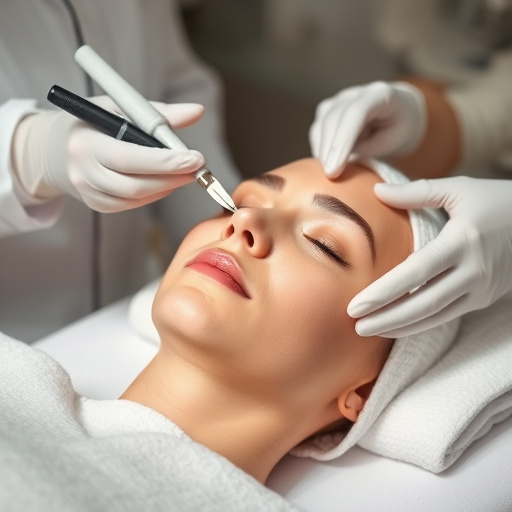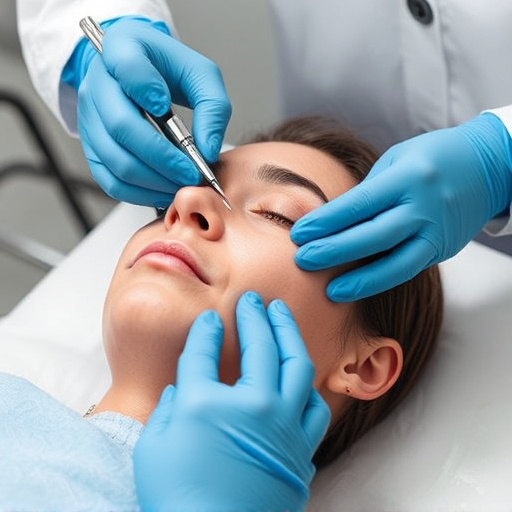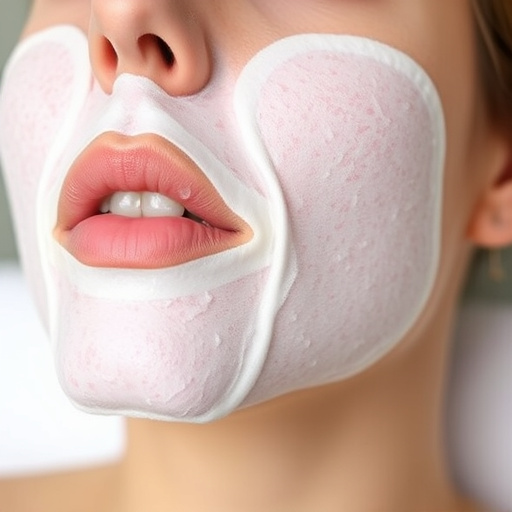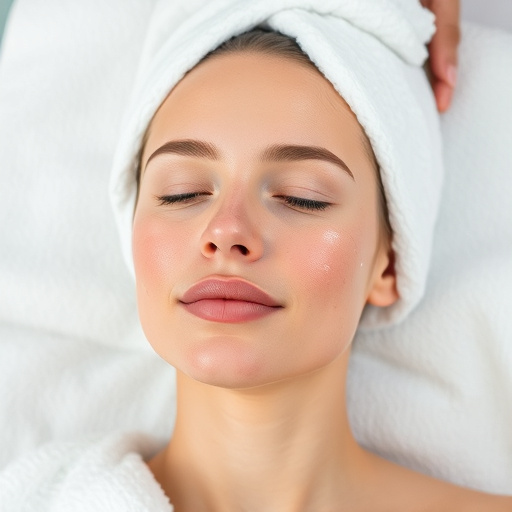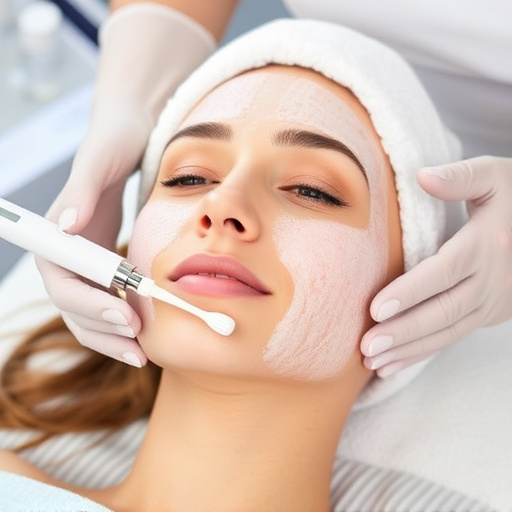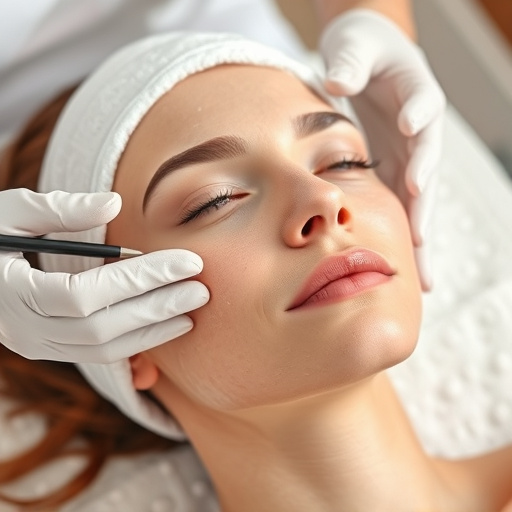Eczema, a complex skin condition with varying types, is managed through understanding its causes—genetics, environment, and immune system overreactivity. Personalized skincare routines, including moisturizers and specialized products, restore skin barrier function and reduce inflammation. Topical treatments like corticosteroids and ceramides soothe and heal irritated skin, while professional treatments like chemical peels and facials enhance skin rejuvenation for improved texture and appearance.
Eczema, characterized by redness, itching, and patchy dry spots, can be a persistent skin condition. Understanding its causes and symptoms is the first step towards effective management. This article explores comprehensive eczema skincare treatment options, focusing on moisture retention through moisturizers and the role of topical treatments in reducing skin inflammation. By delving into these strategies, we aim to provide insights into alleviating eczema symptoms and achieving healthier, calmer skin. Discover practical tips for an improved eczema skincare routine.
- Understanding Eczema: Causes and Symptoms Explained
- The Role of Moisturizers in Eczema Skincare Treatment
- Topical Treatments and Their Effectiveness Against Redness
Understanding Eczema: Causes and Symptoms Explained
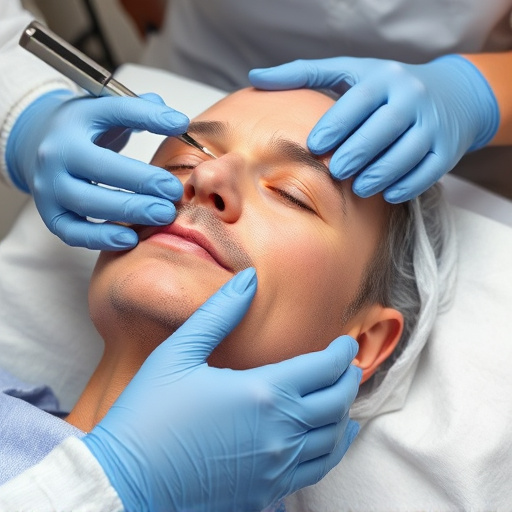
Eczema is a common yet complex skin condition characterized by dry, itchy, and irritated patches. It affects individuals of all ages and backgrounds, with various types including atopic dermatitis (the most prevalent form), contact dermatitis, and seborrheic dermatitis. The primary causes of eczema are often a combination of genetic predisposition, environmental triggers, and immune system overreactivity.
Symptoms can vary but typically include redness, inflammation, dry skin, blisters, cracking, oozing, and scaling. In some cases, small raised bumps filled with fluid may appear, especially when the condition is active. Understanding these causes and symptoms is crucial for anyone seeking effective eczema skincare treatment. Personalized skincare routines that incorporate tailored products, such as customized facials or targeted topical treatments, along with strategies to manage triggers through lifestyle changes, can significantly reduce redness and patchy dry spots associated with eczema. Additionally, professional procedures like chemical peels may offer benefits by exfoliating the skin and reducing inflammation.
The Role of Moisturizers in Eczema Skincare Treatment
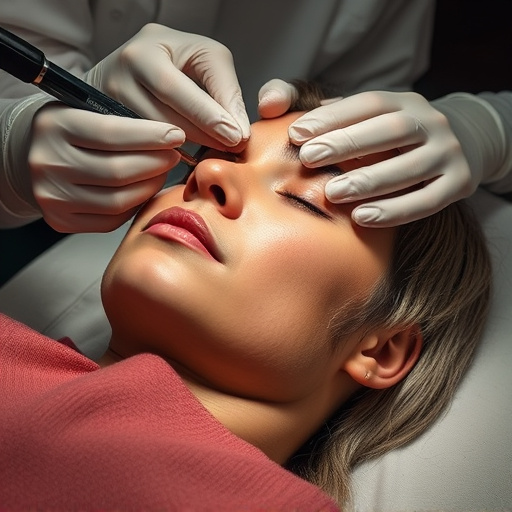
Moisturizers play a pivotal role in effective eczema skincare treatment, addressing two key symptoms: redness and patchy dry spots. They work by restoring and maintaining the skin’s natural barrier function, which is often compromised in individuals with eczema. This barrier is responsible for keeping moisture in and irritants out. By applying moisturizers regularly, the skin’s hydration levels are boosted, reducing flakiness and alleviating itching. Additionally, certain moisturizing ingredients have anti-inflammatory properties that can help calm the skin and minimize redness.
Beyond basic hydration, advanced eczema skincare routines may incorporate specialized products tailored to address specific concerns. For instance, some moisturizers include active ingredients like ceramides or colloidal oatmeal, which have been shown to improve skin barrier repair and reduce inflammation. In severe cases, prescriptive topical creams or ointments might be recommended, offering stronger moisture-locking properties and additional active ingredients to target eczema’s underlying causes. Regular use of these formulations as part of a comprehensive eczema skincare treatment regimen can significantly enhance the overall health and appearance of affected areas, even promoting smoother, more youthful-looking skin through improved texture and reduced scarring—a benefit often associated with body contouring techniques or facial treatments.
Topical Treatments and Their Effectiveness Against Redness
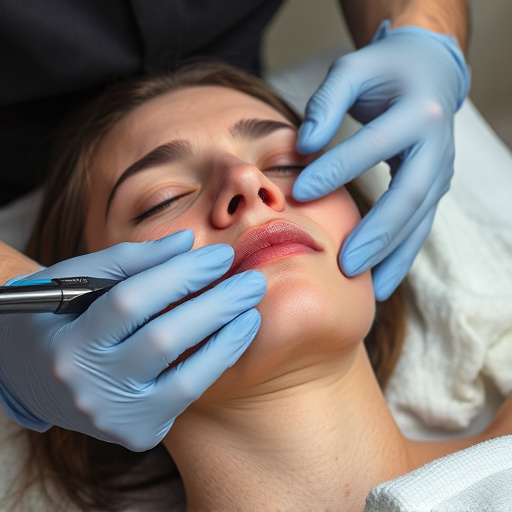
Many people living with eczema find relief through various topical treatments designed to soothe and heal irritated skin. These treatments are a crucial aspect of an effective eczema skincare treatment routine, offering targeted solutions for reducing redness and addressing patchy dry spots. One of the most common and successful methods involves using corticosteroids, which can quickly reduce inflammation and ease symptoms like itching and rashes.
Additionally, topical calaminates and antihistamines provide relief by cooling and calming the skin. Modern eczema skincare treatment options also include advanced formulations with ingredients like ceramides, which help restore the skin’s natural barrier, preventing moisture loss and further irritation. Customized facials and targeted treatments can offer tailored solutions for different skin types and severity levels, contributing to overall skin rejuvenation and a significant improvement in appearance and texture.
Eczema skincare treatment focuses on alleviating redness, itching, and dry patches. By understanding the causes and symptoms of eczema, incorporating effective moisturizers into daily routines, and utilizing topical treatments, individuals can significantly reduce flare-ups and improve overall skin health. These strategies empower folks to manage their condition effectively and regain control over their skin’s well-being.







